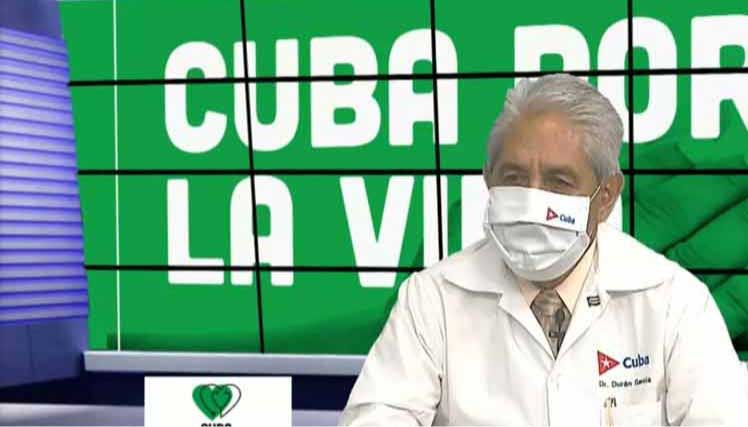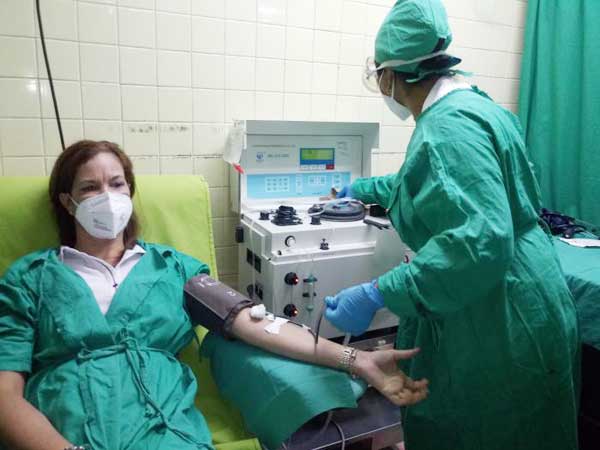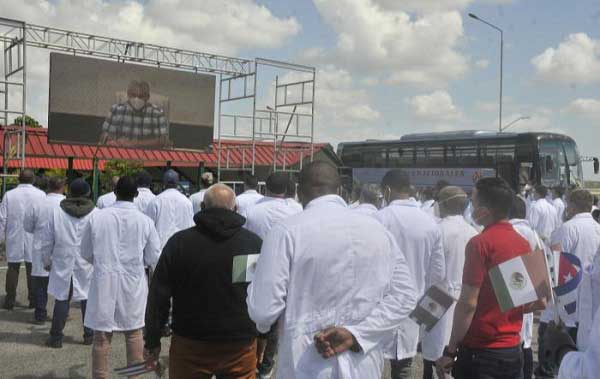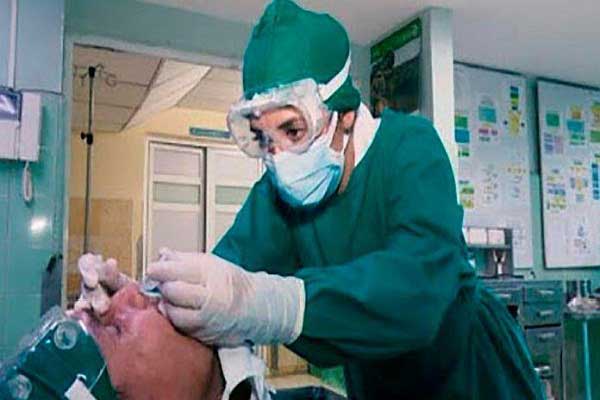
• Cuba Reports Almost One Thousand New Infections of COVID-19 • Cuba Guarantees Care for Patients Recovering from COVID-19 • Cuban President Welcomes Medical Brigade Returning from Mexico • Havana Ramps up the Protocol for Protection Against COVID-19 •
Cuba Reports Almost One Thousand New Infections of COVID-19
Havana, Cuba.- The national director of Epidemiology, Dr. Francisco Durán, reported on Tuesday four deaths and 997 positive samples for COVID-19 over the last24 hours, for a total of 51,587 diagnoses and 328 deaths to date in the nation.
Tuesday’s report marks a substantial increase in the number of cases in comparison to previous days.
The specialist said on national TV that as of midnight, 18,660 patients had been admitted in hospitals and isolation centers, of which 2,833 were suspected, 11,550 were under epidemiological surveillance and 4,277 were confirmed cases.
Durán explained that the country had taken 17,577 samples the day before for a total of 2,428,864 samples analyzed.
Dr.Durán insisted once again on the situation with patients under 20 years of age, a population group that reports cases on a daily basis.
In the last few hours alone, 126 patients under 20 years of age were detected with COVID-19, 110 in pediatric age, seven of them infants, and a total of 655 are active in hospitals.
Havana reported 607 new cases. Mayabeque and Camaguey followed with 84 and 68 respectively.
Cuba Guarantees Care for Patients Recovering from COVID-19
 Cuba’s public health system has developed an action protocol for the treatment of recuperating COVID-19 patients, designed to ensure assistance throughout the first year following their infection
Cuba’s public health system has developed an action protocol for the treatment of recuperating COVID-19 patients, designed to ensure assistance throughout the first year following their infection
Cuba’s public health system has developed an action protocol for the treatment of recuperating COVID-19 patients, designed to ensure follow-up assistance from medical institutions for all who have recovered from the disease, during the first year after being discharged from the hospital.
Dr. Emilio Fidel Buchaca Faxas, president of the Cuban Internal Medicine Society, explained that attention to convalescents begins at the primary care level, continuing in specific health institutions and the community through a Basic Work Group which includes psychologists, pediatricians, internists, geriatricians, gynecologists, obstetricians, epidemiologists, and rehabilitation specialists, according to the Ministry of Public Health website.
Dr. Buchaca reported that health authorities have organized the provision of inter-consultations with a variety of specialists at the primary level so that referrals to secondary and tertiary institutions can be made during the initial evaluation.
If a specialized consultation is required at the secondary or tertiary level, municipal and provincial health commissions are responsible for guiding patients, to ensure treatment of transitory or long-term complications that may appear, be they of a respiratory, cardiovascular, neurological, nephrological, or digestive nature, he said.
Cuban President Welcomes Medical Brigade Returning from Mexico
 The President of the Republic of Cuba, Miguel Díaz-Canel, welcomed on Monday the Henry Reeve International Contingent members specialized in disaster situations and serious epidemics, who faced the COVID-19 in Mexico since December.
The President of the Republic of Cuba, Miguel Díaz-Canel, welcomed on Monday the Henry Reeve International Contingent members specialized in disaster situations and serious epidemics, who faced the COVID-19 in Mexico since December.
Díaz-Canel said the Mexican President and several governmental and health institutions acknowledged the work of this brigade.
“We are pleased that you are back home, in the Homeland, and we count on you to continue confronting COVID-19, not only in sister countries but also in Cuba," said the President in a video message to the brigade members, upon their arrival at José Martí International Airport.
The group of 160 health professionals worked in the operative units of temporary hospitalization.
'We arrived in Mexico at a difficult time. It is one of the countries with the highest mortality and infection rates. However, together with Mexican health personnel, we managed to reduce the mortality rate from 13% to 8%," said René Aveleira, head of the brigade.
Havana Ramps up the Protocol for Protection against COVID-19
 The application in Havana of the improved protocol for confronting COVID-19 will begin this Tuesday with the home administration of Nasalferon to contacts of positive cases and their relatives.
The application in Havana of the improved protocol for confronting COVID-19 will begin this Tuesday with the home administration of Nasalferon to contacts of positive cases and their relatives.
Nasalferon is a drug from the Cuban biotechnology industry to prevent the transmission of SARS-CoV-2 and strengthen the immune system.
The therapy will be administered at home by family doctors and nurses and students of the last years of the Medicine career.
That's according to health officials at Monday's meeting of the Government's Temporary Working Group on the pandemic.
Public Health Minister José Angel Portal Miranda said that in February, the average number of cases per day was 821.7, increasing for the close of January by 64 %, which had 501.2 cases per day.
The highest transmission rates were in Havana, Santiago de Cuba, Guantánamo, Pinar del Río, Mayabeque, and Camagüey, where 84 % of the persons diagnosed during February were concentrated.





